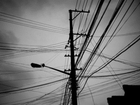The Beirut Court of First Instance has ordered former ministers Ali Hassan Khalil and Ghazi Zoaiter to pay a compensation of 10 billion Lebanese pounds over “the abuse of the right to litigate, defend and appeal,” and for stalling the Beirut port blast case.
 Full Story
Full Story
Lebanese Forces leader Samir Geagea lauded Wednesday a statement by President Joseph Aoun in which he reiterated his commitment to disarm Hezbollah and implement the state's monopoly on arms.
Geagea said Aoun's words were "clear and responsible" and hoped that all political forces would unite behind the President's plan. "Perhaps and hopefully, we may reach, as soon as possible, the actual State that Lebanese people have long dreamed of."
 Full Story
Full Story
Israel and the U.S. are trying to suspend a committee monitoring the ceasefire between Lebanon and Israel and are instead asking Lebanon to accept "extremely difficult" conditions, the head of Lebanon's delegation to the committee said.
Lebanese diplomat and lawyer Simon Karam told journalists Tuesday that the American-Israeli decision and continuous pressure to obstruct the committee's work are "pushing things toward the unknown" and that Lebanon cannot agree to the extremely difficult conditions that Israel is demanding.
 Full Story
Full Story
A meeting comprising Lebanese, Syrian, Egyptian and Jordanian officials will be held in February with the aim of facilitating the exportation of electricity and gas from Jordan and Egypt to Lebanon via Syria, a Lebanese ministerial source told Asharq Al-Awsat newspaper.
The meeting will review previous agreements signed during the era of the Bashar al-Assad regime, as part of the Lebanese authorities' steps to improve electricity supply in Lebanon.
 Full Story
Full Story
The United States has endorsed Israel’s viewpoint that suggests that Lebanon should take “more effective” steps in the face of Hezbollah, al-Akhbar newspaper quoted Western diplomats as telling Lebanese officials.
 Full Story
Full Story
Two people were killed Wednesday in two separate Israeli airstrikes on their vehicles on the Bazouriyeh and al-Zahrani roads, in the southern districts of Tyre and Sidon.
The Israeli army said it targeted two Hezbollah members in the strikes.
 Full Story
Full Story
Saudi envoy Prince Yazid bin Farhan made a “notable” visit last week to Free Patriotic Movement chief Jebran Bassil during his talks in Beirut, ad-Diyar newspaper said.
 Full Story
Full Story
Beirut port blast investigator Judge Tarek Bitar might issue his indictment in the case in two months, ad-Diyar newspaper reported on Tuesday.
“Bitar is waiting for answers to judicial writs that he had sent abroad through which he requested specific information related to the case,” the daily said.
 Full Story
Full Story
President Joseph Aoun and Army Commander General Rodolphe Haykal have committed to taking “a certain step in the North Litani region,” al-Akhbar newspaper reported on Tuesday.
The step will take place “prior to Haykal’s travel to Washington next month,” the pro-Hezbollah daily added.
 Full Story
Full Story
Prime Minister Nawaf Salam said Tuesday that he has discussed with the United Nations the enhancement of humanitarian aid to Lebanon.
Salam was at the annual meeting of The World Economic Forum in the Swiss Alps town of Davos, among 3,000 participants from 130 countries.
 Full Story
Full Story



